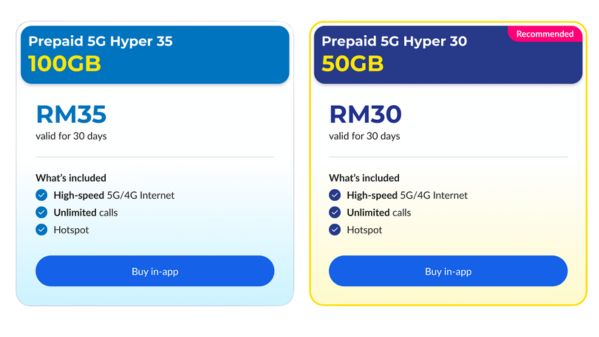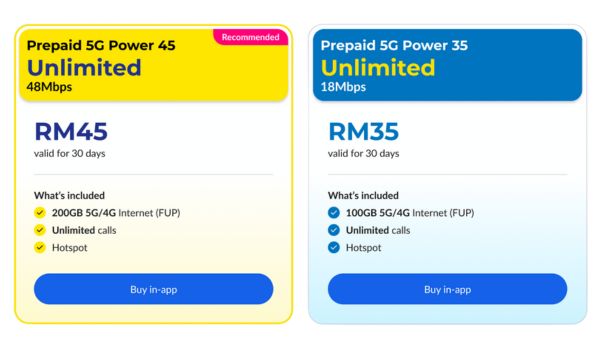

Choosing the best mobile plan in Malaysia in 2026 is no longer just about price — it’s about data speed, flexibility, device bundles and long-term value.
If you’re wondering about the difference between prepaid and postpaid, or asking yourself “Is prepaid cheaper than postpaid?” — this guide breaks it all down to help you decide.
The key difference lies in how you pay these mobile plans and what benefits you receive.
Both now offer 5G connectivity, but the structure and benefits differ depending on your lifestyle needs.
A prepaid plan allows you to reload credit or subscribe to a monthly data pass without signing a contract. It’s often considered the most flexible SIM plan in Malaysia.

If you’re searching for the best prepaid 5G plan in Malaysia, here are options to consider:


These plans are ideal if you’re looking for:
Well, it depends on usage.
Prepaid is usually cheaper upfront because:
However, heavy users who consume large amounts of data every month may find that certain unlimited postpaid plans in Malaysia offer better long-term value.
A postpaid plan bills you at the end of the month. It is popular among professionals, families and heavy data users who prefer seamless connectivity without manual renewals.
If you’re searching for the best postpaid plan in Malaysia with unlimited data, CelcomDigi’s 2026 lineup offers multiple tiers.


Selected benefits may include:
Another commonly asked question.
Postpaid may be better if you:
It offers convenience and premium perks — particularly for those deeply connected to digital services.
| Feature | Prepaid | Postpaid |
|---|---|---|
| Contract | No contract | May require contract with device bundle |
| Billing | Pay before use | Pay monthly after usage |
| 5G access | Yes | Yes |
| Unlimited data | Selected plans | Available on higher plans |
| Phone bundles | Not available | Available |
| Best for | Budget-conscious, flexible users | Heavy users, families, professionals |
Choosing between prepaid and postpaid in Malaysia in 2026 depends on how you use your mobile connection. If you prioritise flexibility and cost control, prepaid plans offer excellent value. If you want convenience, unlimited 5G data and device bundles, postpaid plans may suit you better.

Yes. Many users upgrade from prepaid to postpaid when they need more data or want a postpaid plan with phone bundle options. Switching is common as lifestyle and usage needs change.
Yes. Many prepaid plans now offer 5G access in Malaysia, including CelcomDigi prepaid 5G plans. Users can enjoy faster speeds and smoother streaming, although data limits and speed tiers may vary by plan.
High-speed data refers to a fixed amount of fast 4G or 5G internet (for example, 50GB or 100GB). Once you exceed that quota, your speed may be reduced. Unlimited data plans in Malaysia, allow continuous usage without a data cap, though fair usage policies may apply.
If you regularly stream, game or use hotspot extensively, a postpaid unlimited data plan in Malaysia is usually better. It offers consistent speeds and higher data allocations compared to most prepaid plans.



By submitting this subscription request, I consent to altHR sending me marketing communication via email. I may opt out at any time. View CelcomDigi's Privacy Policy.
© Copyright 2025 CelcomDigi Berhad [Registration No. 199701009694 (425190-X)]. All Rights Reserved.